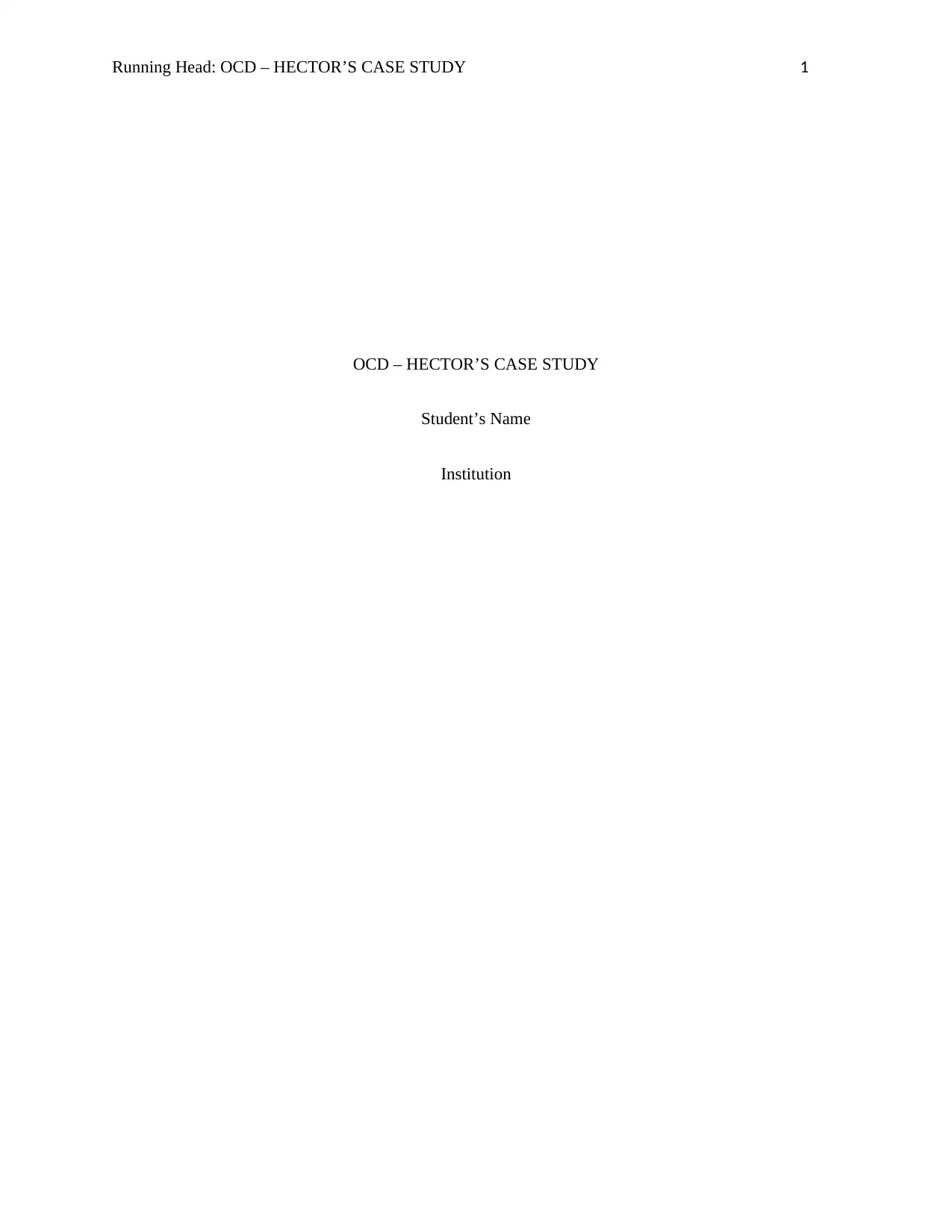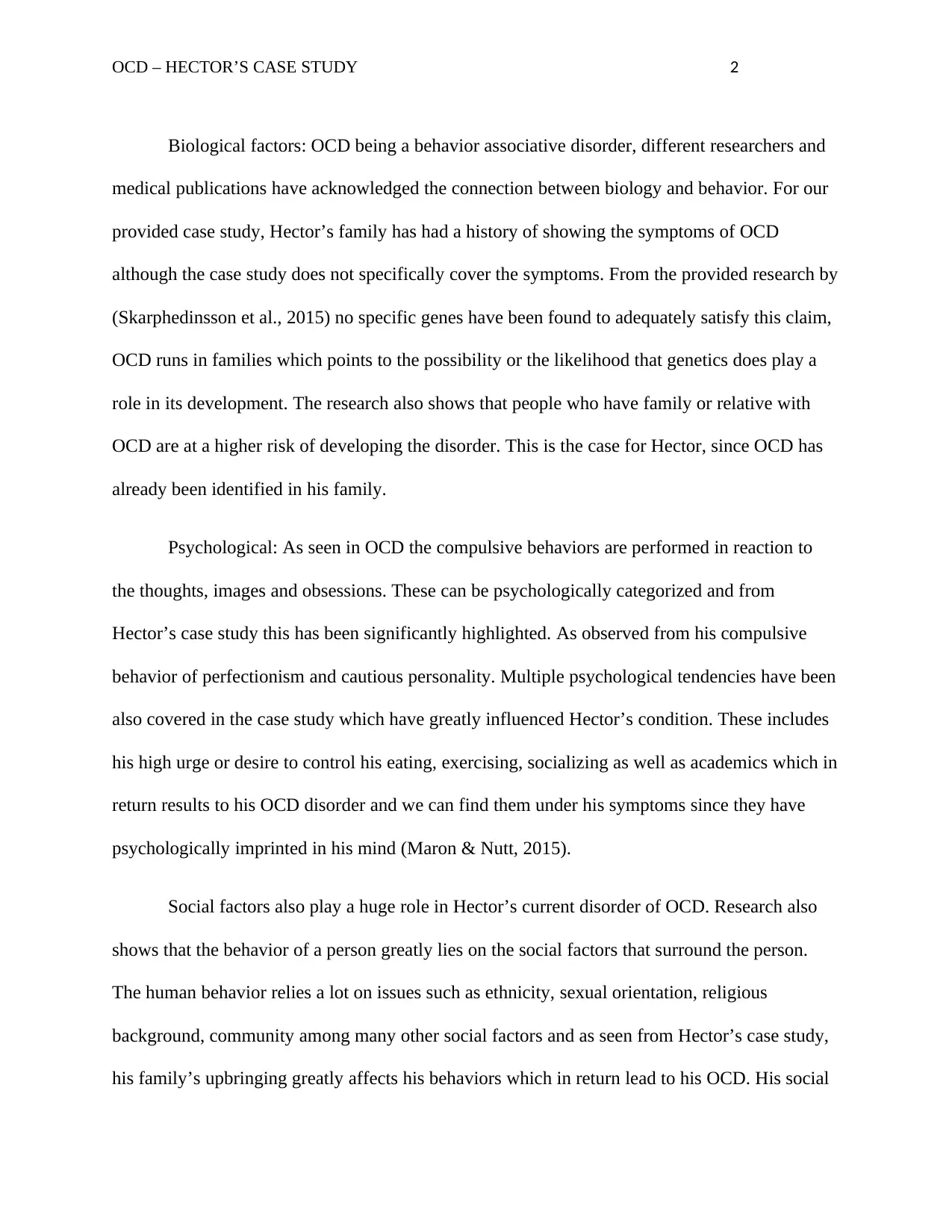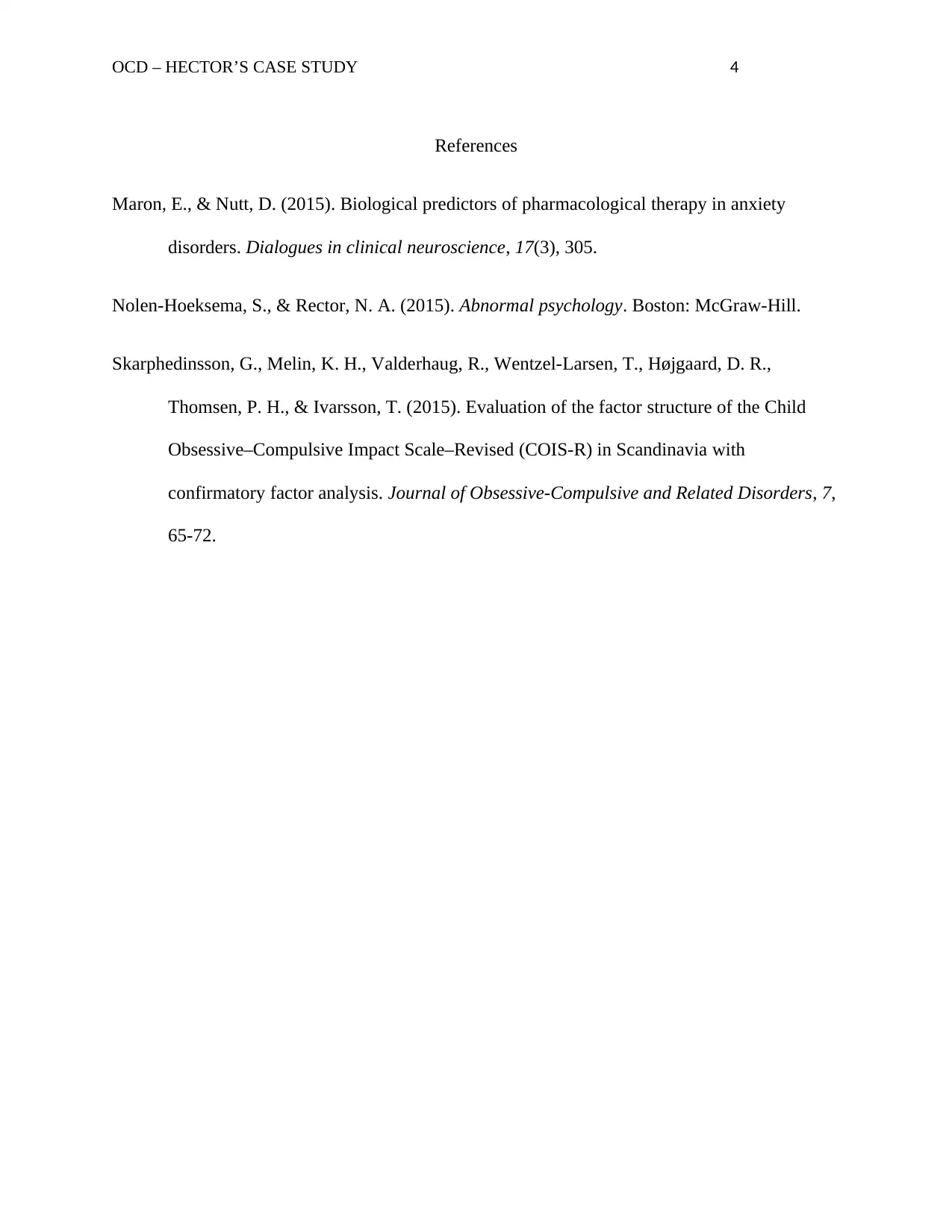Case Study: Biological, Psychological, & Social Factors of OCD
VerifiedAdded on 2023/06/11
|4
|540
|311
Case Study
AI Summary
This case study delves into Hector's experience with Obsessive-Compulsive Disorder (OCD), examining the interplay of biological, psychological, and social factors contributing to his condition. Biologically, the study acknowledges the familial history of OCD symptoms, suggesting a genetic predisposition, even though specific genes haven't been identified. Psychologically, Hector's perfectionism, cautious personality, and desire for control over eating, exercising, socializing, and academics are highlighted as significant influences. Socially, the study emphasizes the impact of Hector's upbringing and limited social interactions, primarily confined to his family, which may hinder his ability to overcome the disorder. The analysis references research supporting these connections between biology, psychology, social environment, and the manifestation of OCD.
1 out of 4











![[object Object]](/_next/static/media/star-bottom.7253800d.svg)